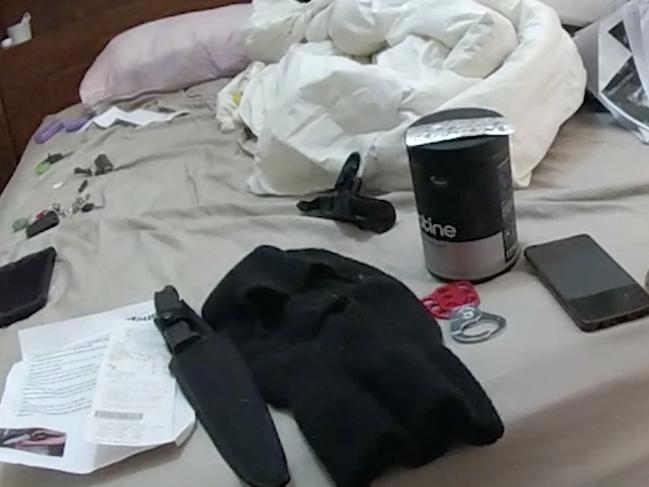Samuel James Grierson in court for Emerald cocaine bust
When a former ADF rifleman was arrested as part of a wider Qld drug ring probe it led to an “uncommon” change for the better. VIDEO.
Police & Courts
Don't miss out on the headlines from Police & Courts. Followed categories will be added to My News.
A former Australian Army rifleman has avoided a return to custody after being busted with more than 60 grams of cocaine across two separate days.
Samuel James Grierson, 31, became a person of interest in a police operation investigating drug trafficking in the Central Highlands in 2024, the Supreme Court in Rockhampton heard on Tuesday.
Crown prosecutor Joshua Phillips said Grierson was first found possessing more than 55 grams of cocaine and while on bail for that, he was then found possessing another nine grams of substance which contained cocaine.
Grierson was intercepted by police about 5pm on the Capricorn Highway at Comet on February 8, 2024, and they found 55.147 grams of substance containing 31.1874 grams of pure cocaine hidden in a cavity of the vehicle.
They also found a cutting agent behind the driver’s seat footwell and a small amount of money.

Grierson, who had served as a rifleman in the Australian Army for five years until he was medically discharged, was found with more cocaine when police searched an Emerald residence in Esmond Street on March 20 at 8.50am where they located Grierson and alleged co-accused Peter John Robinson.
Mr Robinson has charges including one count of trafficking drugs, three of possessing more than two grams of a schedule one drug and other related charges currently before the Supreme Court in Rockhampton.
He recently failed to appear at mentions of his charges, and a warrant has been issued for his arrest as his bail has been revoked.
He has not yet entered any pleas.
Justice Crow said on Tuesday police located nine clip-seal bags containing 2.596 grams of pure cocaine in 8.655 grams along with other items including digital scales, tick sheets and a mobile phone for which Grierson was charged.

Grierson, who had turned to abusing alcohol after a relationship with the mother of his child broke down in 2016 and then moved on to cocaine, was arrested and remanded in custody for 31 days.
Mr Phillips said an “uncommon” feature of this case was that Grierson then successfully completed “without a toe out of line” a 90-day rehabilitation stint which included 30-days hospitalisation.
Grierson’s barrister Samuel Bain supplied the court with drug test results and many reference letters, including one from the rehabilitation centre Grierson attended and one from someone in the AA group Grierson had joined.
Justice Crow said Grierson had “proven beyond a reasonable doubt” that he had “turned his back on drugs”.
He said having served his country, Grierson understood discipline but had also “cast” a “lifelong curse” on himself to stay away from cocaine.
Mr Phillips said Grierson’s rehabilitation efforts meant there was “little to achieve from state supervision now” and he proposed a higher end prison term wholly suspended.
Grierson, who had no prior drug convictions, pleaded guilty to two counts of possessing more than two grams of a schedule one drug, and one count each of possessing items used in a drug offence and possessing a phone used in drug crime.
Justice Crow sentenced him to four-years prison, declared 31 days presentence custody as time already served and wholly suspended the sentence with a four-year operational period.



